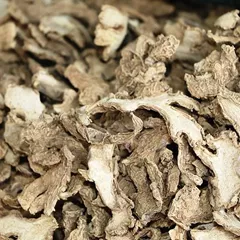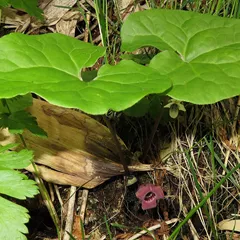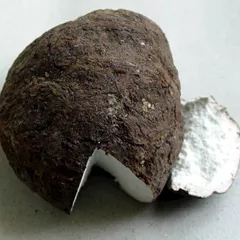Chronic asthma according to Chinese Medicine
The information provided here is not a replacement for a doctor. You shouldn't use it for the purpose of self-diagnosing or self-medicating but rather so you can have a more informed discussion with a professional TCM practitioner.
In Chinese Medicine, chronic asthma is sometimes associated with Cold-Phlegm, a so-called "patterns of disharmony". Chinese Medicine sees the body as a system, not a sum of isolated parts. A "pattern" is when the system's harmony is disrupted. It is not equivalent to the Western concept of "disease" because both concepts arise from totally different ways of seeing the human body.
To understand whether someone's chronic asthma might be caused by the pattern Cold-Phlegm, one needs to look for signs and symptoms associated with the pattern beyond what one might typically experience from chronic asthma alone. Indeed if chronic asthma is caused by Cold-Phlegm, patients also experience symptoms such as white and watery sputum, feeling of oppression of the chest, cold limbs and nausea. Similarly, patients with Cold-Phlegm typically exhibit deep (Chen), slippery (Hua) or slow (Chi) pulses as well as Pale and swollen tongue with white wet coating .
We've listed below a more detailed description of Cold-Phlegm so that you can have a better understanding of where chronic asthma might find its root according to Chinese Medicine.
Once identified, patterns are often treated using herbal formulas. Drinking herbal infusions is the most common remedy in Chinese Medicine, together with acupuncture. Here we detail below Ling Gan Wu Wei Jiang Xin Tang, a formula that can help treat Cold-Phlegm.
Cold-Phlegm, a "pattern of disharmony" associated with chronic asthma

Dried Ginger (Gan Jiang) is the key herb for Ling Gan Wu Wei Jiang Xin Tang, a formula used for Cold-Phlegm
Cold-Phlegm
Pulse type(s): Deep (Chen), Slippery (Hua), Slow (Chi)
Tongue coating: Thick white coating
Tongue color: Pale
Tongue shape: Swollen
Recommended herbal formulas: Ling Gan Wu Wei Jiang Xin Tang San Zi Yang Qin Tang, Ling Gan Wu Wei Jiang Xin Tang
Symptoms: Nausea Cold limbs Poor appetite White and watery sputum Feeling of oppression of the chest
A famous saying in Chinese Medicine goes: "Phlegm has its source in the Kidneys, is then moved by the Spleen, and resides in the Lungs."
This couldn't be more obvious in Cold-Phlegm patterns. The "Cold" aspect of it is that it stems from a Fire Deficiency of the Gate of Life (Ming Men), which is the source of warmth for all physiological processes. This Deficiency inhibits the Spleen's ability to transform and transport the Body Fluids, which accumulate and become Phlegm and thin mucus.
The thin mucus is then sent to the Lungs, the natural next step for Body Fluids after they're filtered in the Spleen. Hence there are the symptoms of white and watery sputum as well as chest oppression in this pattern.
Ling Gan Wu Wei Jiang Xin Tang, a herbal formula that might help with chronic asthma



The top herbs in Ling Gan Wu Wei Jiang Xin Tang are Dried Ginger (Gan Jiang), Wild Ginger (Xi Xin) and Poria-Cocos Mushrooms (Fu Ling)
Ling Gan Wu Wei Jiang Xin Tang
Source date: 220 AD
Number of ingredients: 5 herbs
Key actions: Warms the Lungs. Transforms congested Fluids.
Why might Ling Gan Wu Wei Jiang Xin Tang help with chronic asthma?
Because it is a formula often recommended to help treat Cold-Phlegm, a pattern sometimes associated with chronic asthma. If it looks like you might suffer from Cold-Phlegm, this formula might help (although please seek confirmation with a professional practitioner beforehand).
Symptoms related to chronic asthma
White and watery sputum Feeling of oppression of the chest Cold limbs Nausea Poor appetite

